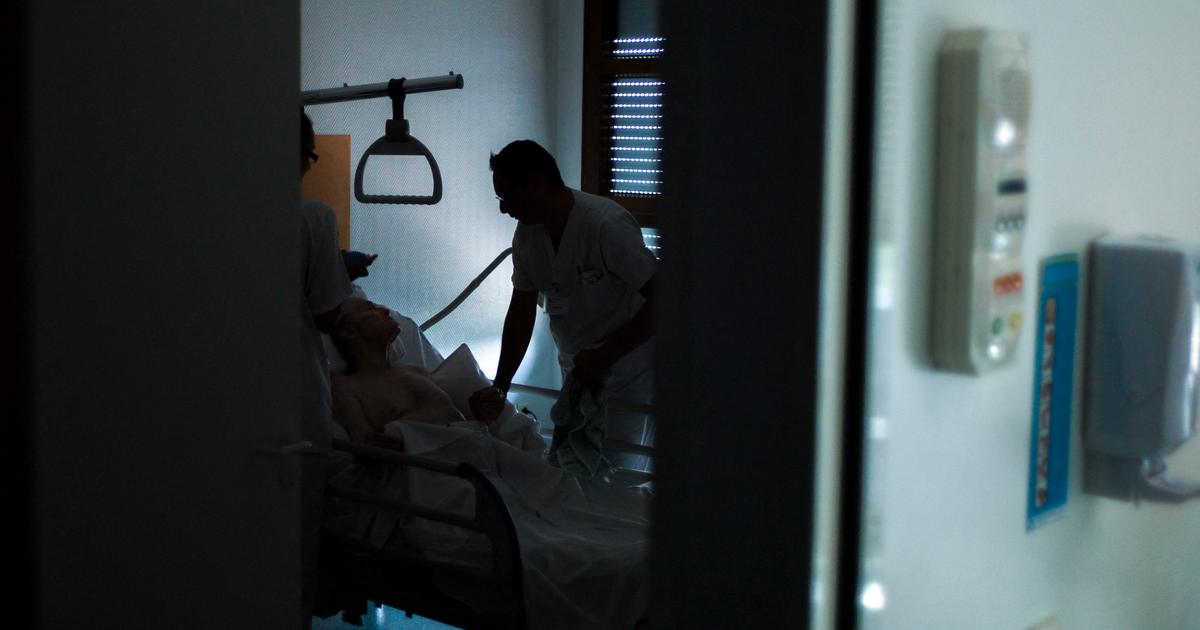Two laws of social scope are a little closer to receiving the endorsement of the Constitutional Court: the euthanasia law and the educational reform known as the
Celáa law.
The first appears fully endorsed in the draft of the sentence and the second, with only two objections.
The euthanasia law "guarantees the right to self-determination of people without leaving life unprotected."
In these terms the draft Constitutional sentence is expressed that proposes to declare said law adjusted to the Constitution.
The text of the presentation - advanced by
El Español
- represents full endorsement of the euthanasia law, approved in March 2021 and immediately appealed by Vox and the PP, who had voted against this regulation, considering it incompatible with the Constitution , to the extent that it proclaims the right to life as fundamental.
The draft sentence - prepared by magistrate Ramón Sáez, from the progressive sector - excludes that the euthanasia law includes unconstitutional precepts.
Vox's appeal argued that said law does not even offer minimal guarantees.
For this, he argued that the legal system provides for judicial intervention in all types of processes, where the right to life is not at stake, and gave as an example the decision to hospitalize a person due to alleged mental illness.
The paper, on the other hand, believes that the euthanasia law provides for a solid system of guarantees and, in contrast to Vox's thesis, affirms that the role of a judge to limit other fundamental rights cannot be equated with "a conscious, voluntary and free request for access” to euthanasia once “the legal conditions have been fulfilled”.
Vox, on the other hand, questioned that it is only possible to go before the Guarantee and Evaluation Commission if the doctor responsible for patient care denies help to die, but does not provide for "any administrative or judicial guarantee" if euthanasia is authorized by said optional.
The paper responds to this thesis that "the legislator has not closed the door to the eventual judicial challenge of the resolutions that recognize access to the benefit."
This challenge —continues the draft sentence— could be raised by whoever claimed "non-compliance with the legal conditions for the administrative recognition of this right."
The speaker also underlines that the prosecutor continues to have full legitimacy to act to protect the fundamental rights of the person.
Objections to the 'Celáa law'
The draft sentence on the educational reform only includes objections to two aspects: the first, regarding the forecast of denying public aid to private centers that separate students by sex.
The rapporteur for the ruling, magistrate Ricardo Enríquez, from the conservative sector, believes that this aspect of the
Celáa law
It must be declared unconstitutional, in line with what had already been progressing on the ruling since November 2021, when the text of the proposal was drafted.
In the second objected aspect, the speaker questions that the administration is only obliged to take into account the will of the families of students with special needs who want to educate them in ordinary centers.
The objection would be that in such cases the opinion of those families who intend to choose specific centers for these students should not be valued.
It will be necessary to see if this proposed sentence passes the filter of the plenary session, because when it was drafted the court had a clear conservative majority that could have endorsed the thesis of the unconstitutionality of the two precepts described.
Now, however, the internal balance of the Constitutional Court, which has a progressive majority, has changed, which makes it possible to consider the possibility that the reproach for the denial of public aid to private centers that separate by sex is not admitted.
The appeal that is going to be resolved is the one presented by Vox;
there was another later, from the PP, in similar terms.
The resolution that is now handed down will be what in the jargon of the court is called the head sentence, whose theses will then be applied to the appeal of the PP.
As background, with the aforementioned conservative majority, the guarantee court decided in 2018 that education segregated by sex "does not cause discrimination" and "is respectful of the Constitution."
This thesis was supported by eight of the twelve magistrates who estimated that private centers for single-sex education can receive money from the "public financing system on equal terms" with the rest of the schools.
The appeal was then filed by the PSOE, in 2014, against the LOMCE (Organic Law for the Improvement of Educational Quality).
The court concluded that "the differentiated education system is a pedagogical option that cannot be considered as discriminatory."
Now, the solution that is pointed out is that the Constitutional Court can consider that the opposite option is not opposed to the Constitution either, that is, that the Government considers that public money does not have to be used to subsidize segregated education.
Subscribe to continue reading
Read without limits
Keep reading
I'm already a subscriber









